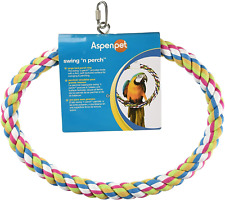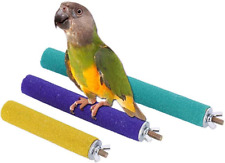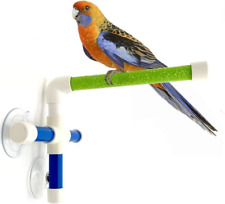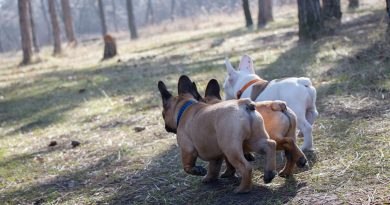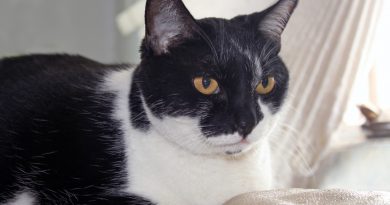Essential Oils and Your Pets: Are they safe?
Essential oils have become all the rage for those looking for natural remedies. They are popular because oils have potential health benefits, are all-natural and can be obtained easily.
It is important, however, to keep in mind that many concentrated essential oils can cause minor to life-threatening illness in cats and dogs.
Essential oils are used in a couple of different ways. They can be used topically (applied to the skin) or as an aromatic (diffused into the air).

Pets are most commonly exposed to essential oils as they are diffused into the air and as topical products.
Accidental exposure is common. Cats are especially curious and enjoy jumping up on counter-tops. They may knock over a diffuser or a bottle and end up with oils on their fur or skin. It is second nature for dogs and cats to lick things off of their fur, so essential oils may be accidentally ingested.
Respiratory irritation is very common in pets that are exposed to an essential oil diffuser. If you notice that your pet coughs or sneezes more when the diffuser is running, consider ditching it. Never use an essential oil diffuser in homes with asthmatic cats or brachycephalic “smushy faced” breeds, like pugs and bulldogs.
Several types of essential oils are toxic to pets, including:
- Oil of Sweet Birch
- Oil of Wintergreen
- Citrus oil (d-limonene)
- Pine oils
- Ylang Ylang oil
- Peppermint oil
- Cinnamon oil
- Pennyroyal oil
- Clove oil
- Eucalyptus oil
- Tea tree oil
What About Tea Tree Oil? Can’t you use that for fleas?
Tea tree oil has an undeserved reputation as a “safe”, all-natural flea treatment. Tea tree oil is the most common essential oil associated with toxicity in dogs and cats. Many “animal safe” products such as shampoos and anti-allergy remedies also contain tea tree oil.
It is also known as Melaleuca oil and is made from Melaleuca alternifolia tree leaves. This tree is native to Australia, Spain and Portugal but is quite common in the southern United States.
Tea tree oil is used topically in humans and animals as a skin remedy, as an antiseptic, for respiratory disorders, aromatherapy and in skin care products.
Very few safety studies have been done on short or long-term use of tea tree oil in any species.
What about the fleas? Avoid using tea tree oil. Talk to your veterinarian about safe, effective prevention methods.
After topical or oral exposure to 100% tea tree oil, pets can experience symptoms of toxicity within the first 12 hours. Signs can last up to 72 hours.
Almost any essential oil poisoning can cause these symptoms:
- Lethargy
- Listlessness
- Hind limb weakness
- Muscle Tremors
- Vomiting
- Collapse
- Coma
- Itchy skin
- Skin Rash
- Excessive salivation
- Liver damage
- Difficulty Breathing
- Sudden Death
The authors of the largest veterinary tea tree oil toxicity study to date state:
“…use of 100% tea tree oil in dogs or cats to treat various health conditions can lead to serious clinical signs, including signs of CNS [central nervous system] depression, paresis, ataxia, and muscle tremors. Younger and smaller body weight cats are at greater risk of developing major clinical effects from tea tree oil. Until more studies are available to determine the safety and efficacy of 100% tea tree oil, its use in dogs or cats is not recommended.”
If your pet has been exposed to essential oils, contact your veterinarian or a local animal poison control center ASAP. Animal Poison Control resources are listed at the end of this article.
Early intervention makes a huge difference in the outcome of a poisoning. Detoxification either with special bathing, intravenous fluids and supportive care at a veterinary hospital is often necessary for a positive outcome.
Prevention
![]()
Veterinarians urge pet parents to not use essential oils on or around their pets. If you have it in your household, treat it as a potential toxin and store it in a high, locked cupboard away from pets and children.
100% tea tree oil is a ‘schedule 6 poison’ in Australia (moderate potential for causing harm) and is sold in child-resistant packaging with warnings on the label. At the date of publication (January 2018), similar measures are not mandated in Canada or the USA.
Animal Poison Control Information
ASPCA Animal Poison Control Contact Information
Resources
- Khan SA, McLean MK, Slater MR. Concentrated tea tree oil toxicosis in dogs and cats: 443 cases (2002-2012). J Am Vet Med Assoc. January 1, 2014;244(1):95-9.







